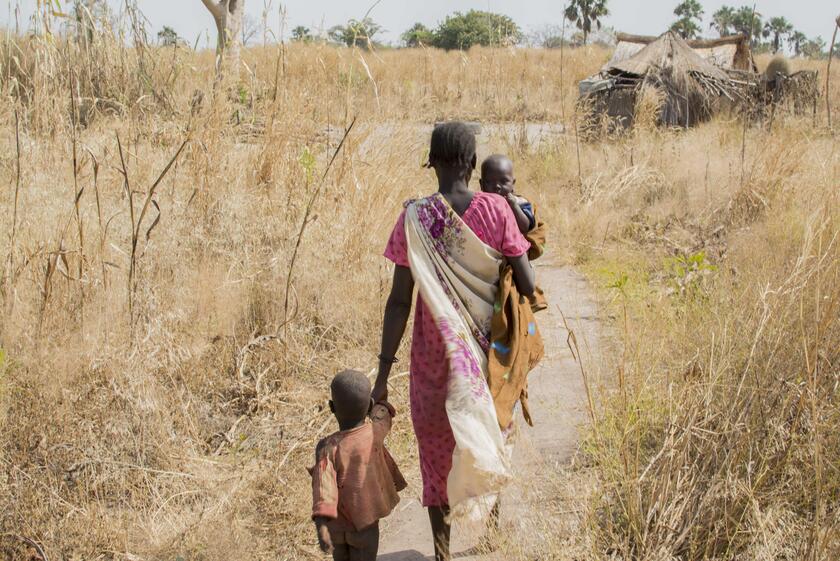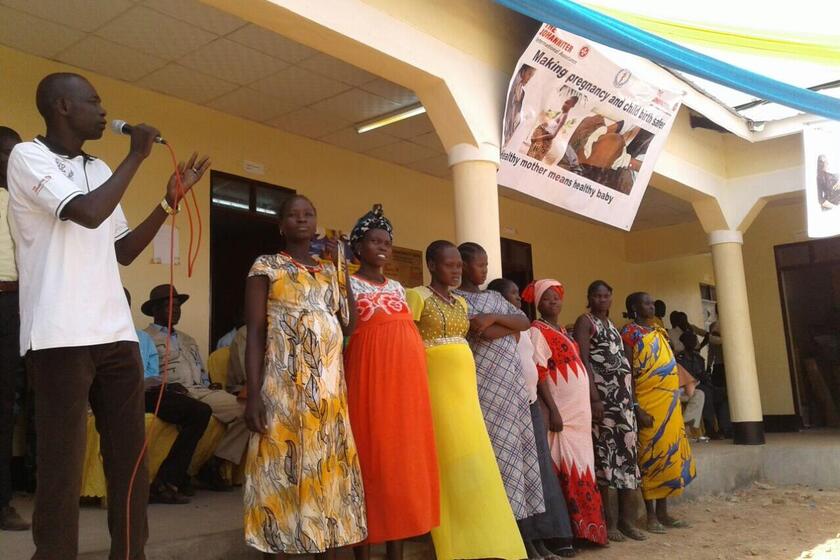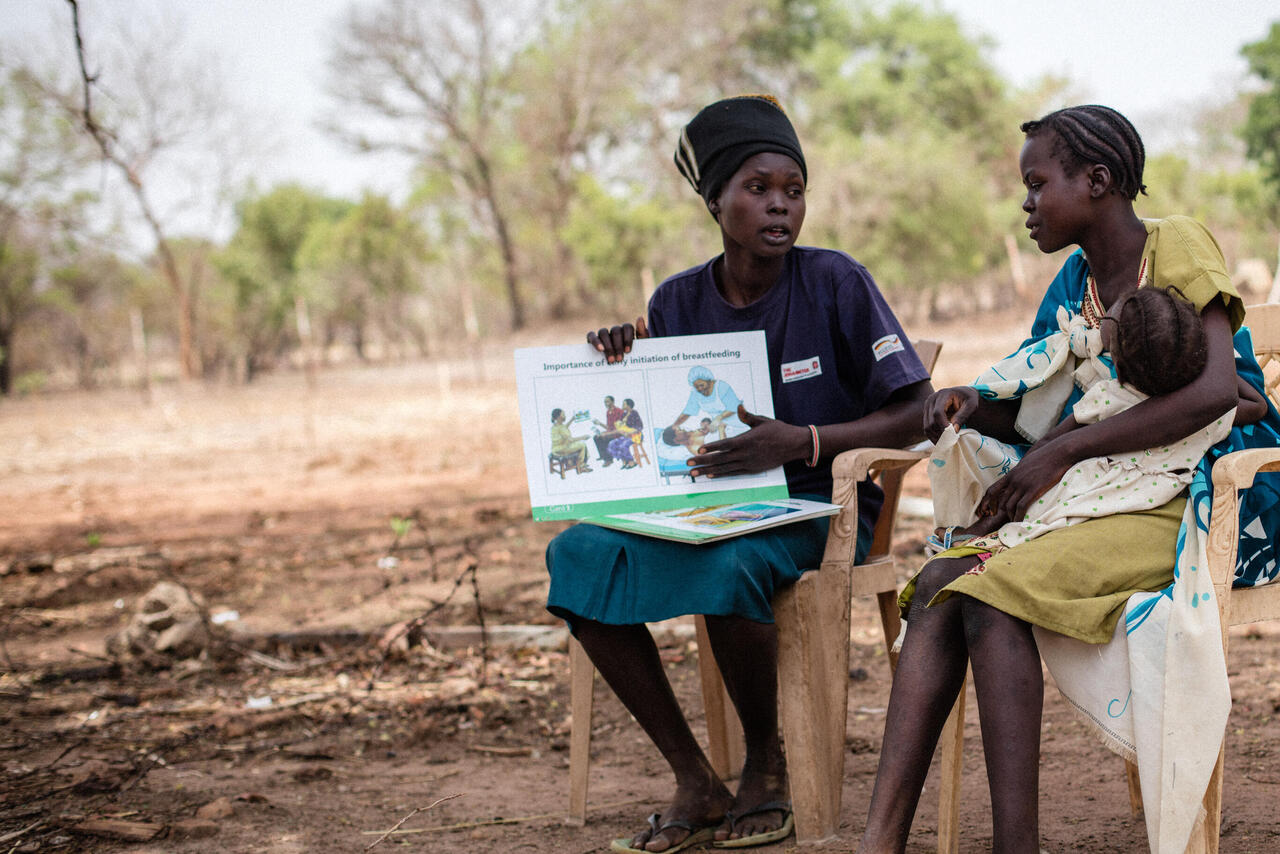South Sudan: More protection and health for girls and women

Berlin / Juba, 18 December 2018
On average, eight pregnant women and five newborns die every day in South Sudan from birth complications. This is an indication of how far the country is from a functioning health care system. About 1.7 million people are on the run. Especially the girls and women among them are affected by sexual violence and exploitation. Together with the Else Kröner-Fresenius-Foundation, Johanniter is committed to improving the care of pregnant women and providing more protection against violence.
With the war came destruction: during armed conflicts in the Wau South region in 2016, the Nazareth Health Centre was destroyed. This centre had previously provided small-scale emergency care for births and newborns.
Today people are slowly returning to their homes. To help them find better conditions, we have supported the people in rebuilding the destroyed structures. A maternity ward was also built and equipped. Four trained midwives and two volunteers will run it. The model is an maternity ward which we have already inaugurated in Kangi and have been supporting ever since. In the future, both wards will contribute to increasing the number of professionally attended births in the region.
Helping affected people, reducing risks

Besides medical care, the protection of girls and women plays an important role. "Whether looking for firewood or in a hut in the refugee camp: the risk is high that girls and women are subject to sexual assault and rape. Our goal is to be able to offer them rapid medical assistance within the first 72 hours in such cases, and to provide psychosocial support," says Kristina Riesinger, Johanniter project coordinator for South Sudan.
For this purpose, shelters for women will be set up in the three villages of Kangi, Mapel and Wau. Here, 15 trained social workers will provide advice and support to those affected. They also raise awareness among community members about ways to protect themselves against such attacks. Boys and men are involved in the information campaigns. 20 volunteers are trained and assigned to provide medical care for rape victims. The planned measures are directly available to around 15,000 people in the region and will be financed for one year by the Else Kröner-Fresenius Foundation, with which we have already enjoyed a long-standing partnership.

